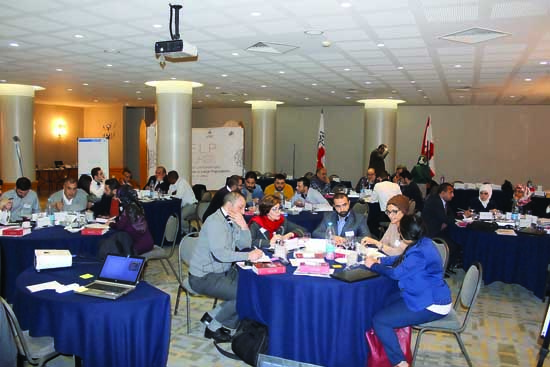

The Peninsula
Doha: Qatar Red Crescent Society (QRCS) is organising the 10-day Health Emergencies in Large Populations (H.E.L.P.) Course in Beirut, Lebanon, in cooperation with the International Committee of the Red Cross (ICRC), Lebanese Red Cross (LRC) and Qatar University (QU).
It aims to improve field work of local, regional, and international relief organisations, and ensure immediate health intervention to control diseases and epidemics in accordance with the ethical and humanitarian standards.
The course is attended by 30 relief specialists from 10 countries, with lecturers and trainers from national societies and international organisations, mainly ICRC.
In cooperation with ICRC and the University of Calgary in Qatar, QRCS organised three versions of the course in 2011, 2012 and 2013, with 76 participants.
QRCS is the only organisation accredited by ICRC to hold the course in the Middle East and North Africa (Mena). It is the only Arabic-speaking version of the course, held in English worldwide since its inception in 1986.
In his opening remarks, Dr Paul Bouvier, Senior Medical Adviser, ICRC, said, “The course seeks to develop the technical and professional capacity of health emergency workers to enhance their crisis response across the board.”
He stressed the importance of sharing experience, success stories, and challenges and adopting ethical decisionmaking to meet the needs while observing humanitarian and professional principles.
Fouad Bawaba, Senior Communication Officer, ICRC, thanked those who helped translate the documents of the course held in Latin America, North America, Europe, Africa and Asia.
He described the course as an advanced professional training for the region and said: “We will continue to cooperate with QRCS and other national societies in this aspect.”
Omar Katerji, Head, QRCS office in Lebanon, said the course is compatible with QRCS’s strategy of crisis preparedness, especially in Mena, through investment in response capacity-building.
“Our goal is to create a culture of shared experience, preparedness, and timely and effective action skills. We hope that the certificates of the course will testify to the pre-emptive awareness pursued by QRCS.”
The course is part of QRCS’s year-round training programme to build the health capacity in Qatar and the region. It covers topics, including planning, food security, public health, epidemic management, healthcare systems, the International Humanitarian Law, refugee protection, psychological support, shelter and camp management.




